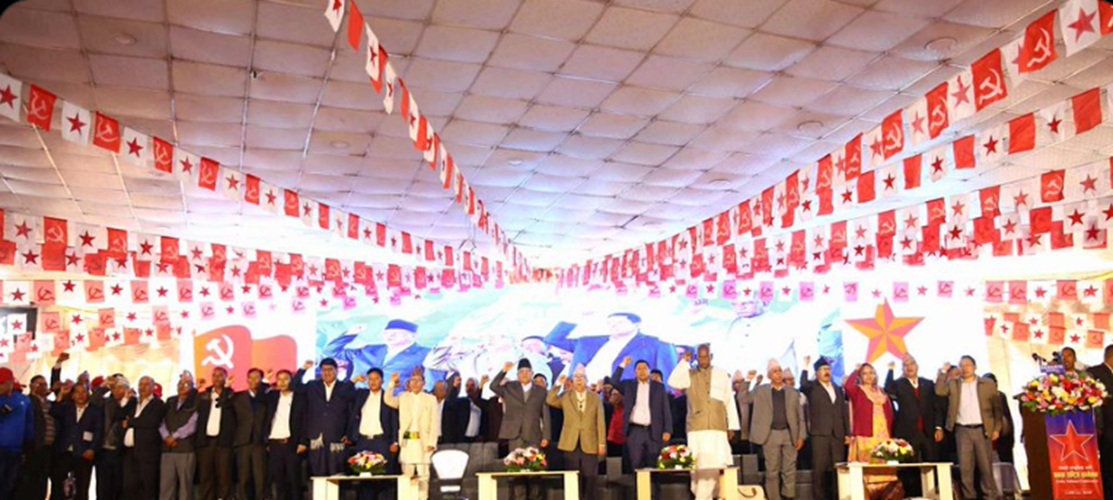In a major political realignment ahead of Nepal’s general elections, nine left-leaning parties — including the CPN (Maoist Centre) and CPN (Unified Socialist) — have come together to form a single entity, the Nepali Communist Party.
The merger, announced at a massive rally at Bhrikutimandap in Kathmandu on Wednesday, comes amid growing public discontent over corruption and political instability.
The unification, formalised after weeks of negotiations, follows mounting pressure from the youth-led Gen Z protests that have swept across Nepal in recent months.
The demonstrations, demanding transparency, accountability, and reform, are seen as a catalyst for the renewed push for unity among the country’s fragmented left parties.
Former Prime Minister Pushpa Kamal Dahal “Prachanda,” who led the CPN (Maoist Centre), and senior leaders from the CPN (Unified Socialist) spearheaded the move.
Ahead of the announcement, Prachanda’s party held a final convention meeting to endorse the merger plan.
Addressing supporters at the rally, senior leader Narayan Kaji Shrestha said the merger marks “a historic step” in consolidating Nepal’s left forces to ensure good governance, political stability, and economic progress.
“We are responding to the call for clean politics and development. The youth movement has reminded us of our unfinished responsibilities to the nation,” he said.
The unified party will be guided by Marxism-Leninism and will pursue what leaders describe as “scientific socialism with Nepali characteristics.”
The group’s joint central committee will now work on drafting an interim constitution, leadership framework, and a formal political declaration.
The newly formed party has also adopted a five-pointed star as its election symbol.
This is not Nepal’s first experiment with left unification.
A similar merger in 2018 between the Maoists and the CPN-UML had led to the creation of a powerful communist bloc, though internal disputes later caused its collapse.
This latest move, however, comes at a time of renewed political turbulence following the ouster of former Prime Minister KP Sharma Oli after violent protests in September.
With former Chief Justice Sushila Karki currently serving as interim Prime Minister and elections slated for March 2026, the formation of the new Nepali Communist Party is expected to reshape the country’s political landscape once again.















